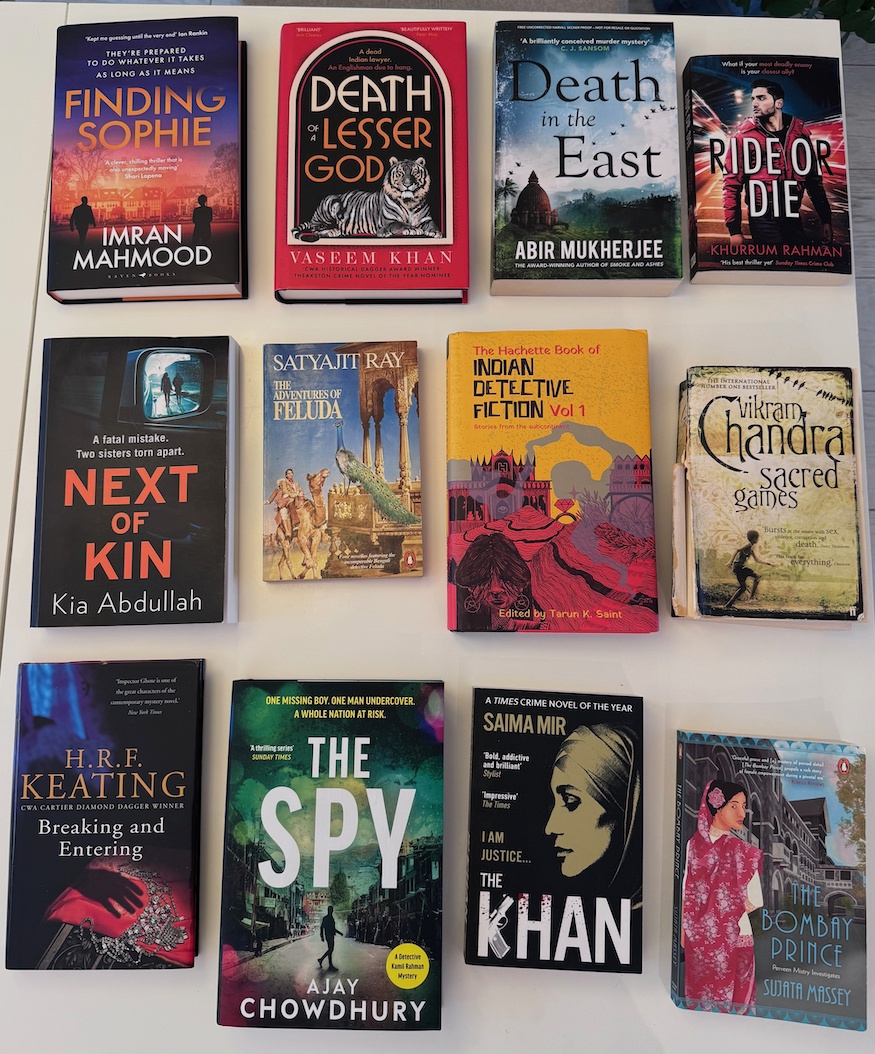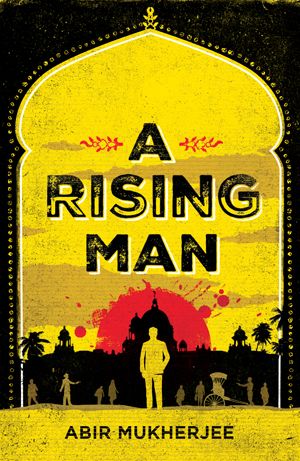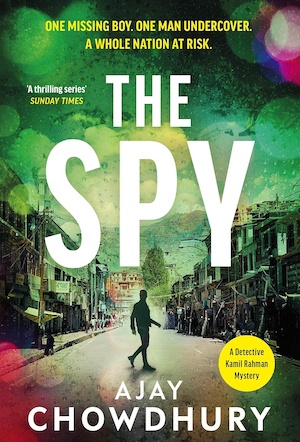Today we’re joined by crime author Ajay Chowdhury – famous in the genre for his Kamil Rahman novels and famous in the tech world as the investor who took the tune identifying app Shazam to market. Here he shares his thoughts on how a new crop of South Asian crime authors is changing the face of crime fiction in Britain, and beyond. It’s over to him…

I grew up in India devouring Sherlock Holmes, Hercule Poirot, Ellery Queen, Nero Wolfe and Inspector Ghote – and never thought to ask why the only Indian detective on that list was written by an Englishman who had not even visited the country! I knew vaguely that there was a thriving culture of crime writing in local languages – Satyajit Ray’s Feluda, Saradindu Bandopadhyay’s Byomkesh Bakshi, for instance – but I never sought them out.
In the 80s and 90s, South Asian literary fiction was all the rage. Writers like Salman Rushdie, Arundhati Roy, Amit Chaudhuri and Monica Ali were lauded, but I saw little genre fiction from South Asian writers. Where were the romance and sci-fi books? Why were no Indian or Pakistani writers assaying crime fiction?
It’s only in the last decade that publishers have cottoned on to the fact that crime readers enjoy diverse stories. And now, a new crop of South Asian writers is changing the complexion of popular UK crime fiction.

Recent research carried out by my publisher, Vintage, revealed that historically Asian readers have felt underserved by crime books and find TV crime much more relatable, evidenced by the popularity of characters like Mrs Sidhu, DI Ray and The Indian Detective and, soon to come, AA Dhand’s Harry Virdee, not to mention my own Kamil Rahman and Anjoli Chatterjee. In addition, black and Asian readers are also typically younger and more urban than their white counterparts.
The growth of the Indian diaspora has cultivated a significant and involved readership for narratives that echo their heritage. Such stories, mirroring the characters and scenarios familiar to them, particularly appeal to the second-generation immigrant children. Born and raised in their new homeland, these individuals have observed their parents adapting to a new culture, often in pursuit of better opportunities or fleeing political turmoil worldwide.
Still others are drawn to the captivating exploration of what might be, for them, a new cultural landscape. Take Vikram Chandra’s phenomenal Sacred Games, a sprawling epic that weaves Mumbai’s underbelly with Hindu mythology. The reader isn’t just following a detective; they’re being transported into a bustling, chaotic world that feels entirely fresh.
And it’s not just South Asian readers who find these stories appealing. All readers are hungry for experiences beyond the familiar, and South Asian writers fill that void with settings rich in history, vibrant cultures and complex familial relationships. A good example is Abir Mukherjee’s Wyndham and Banerjee series, which explores pre-Independence India from the perspective of a conflicted British detective and his Bengali sidekick. Vaseem Khan’s Malabar House series and Sujata Massey’s Perveen Mistry books also bring to life colonial India through the eyes of two female Parsi detectives.

South Asian writers are excellent at weaving social commentary into their narratives. Crime fiction allows them to tackle sensitive issues like corruption, poverty and class divides, offering a critical lens on contemporary Britain as well as India. This is an area I’ve been exploring in my own Kamil Rahman series. In his latest outing in The Spy, Kamil infiltrates a terrorist group and travels to Kashmir, where he experiences first-hand the mistreatment of minorities in India and almost gets radicalised.
Having read a lot of crime fiction, I’ve noticed a distinct contrast in narrative style. South Asian thrillers often move at a slower pace, building atmosphere and delving into the psychology of the crime. Think of Kia Abdullah’s Next of Kin, a chilling exploration of trauma and loss in an Asian family in London; or Imran Mahmood’s You Don’t Know Me that brilliantly tells the story of a crime entirely through the closing speech of the accused. This focus on character and introspection creates a different type of suspense – one that lingers long after the last page.
Finally, South Asian crime writers excel at creating multifaceted characters. Gone are the days of the stoic detective. We’re introduced to flawed, relatable protagonists often caught between two worlds. In Saima Mir’s The Khan successful London lawyer Jia Khan has to deal with her father’s organised crime syndicate; and Khurrum Rahman’s Jay Qasim trilogy explores the story of a Hounslow boy recruited by MI5 to spy on his community. These characters resonate because they grapple with the same human struggles – ambition, guilt and the yearning for belonging – that transcend geographical boundaries.
But I would say that the rise of South Asian crime fiction isn’t just about exotic settings or social commentary. It’s a testament to the universality of human experience. These novels remind us that crime, love, loss, and the desire for justice are emotions felt across continents, and across racial and political divides. They offer a glimpse into different cultures, while simultaneously holding up a mirror to our own. The authors I’ve mentioned here are just a few who are crafting great stories. There are so many others I could have discussed including AA Chaudhuri, Mahi Cheshire, Amer Anwar, Rosie Claverton, Alex Caan, Sanjida Kay… the list grows by the month.
So this is no longer a niche market. It’s a vibrant and diverse genre that’s here to stay. Next time you’re looking for a gripping read, take a walk down a bustling Kolkata bazaar, stroll around a tranquil Kashmiri lake, or venture into London’s Banglatown with a South Asian crime novel in hand. You might just discover your next literary obsession.
Try Ajay Chowdhury’s latest novel, The Spy, using the buttons below…





